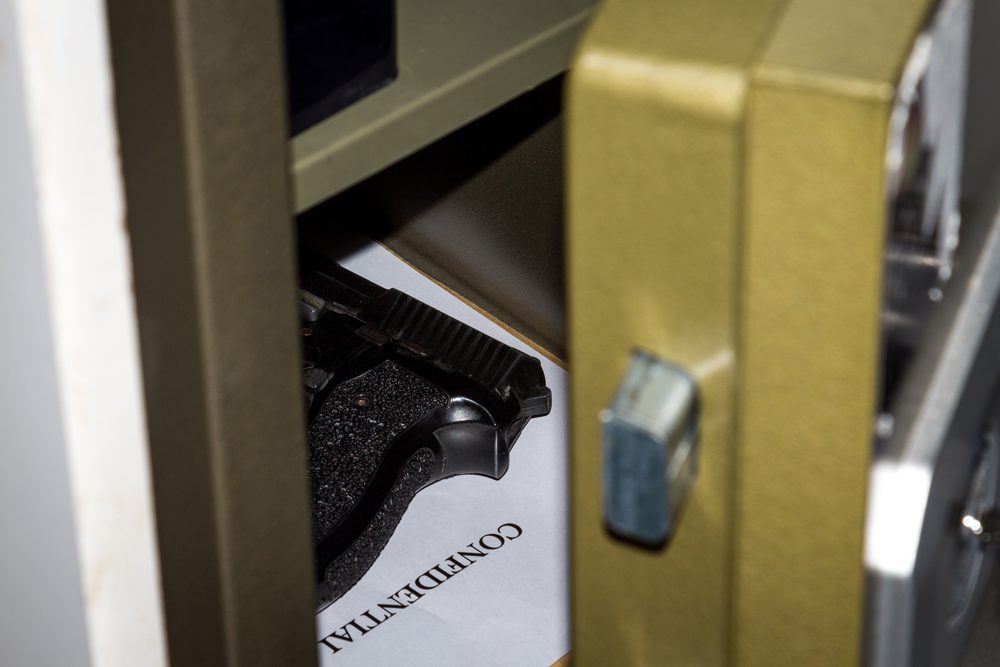There is a common misconception that people with mental health disorders are violent. Whenever a mass shooting occurs, talk inevitably turns to mental health. It’s hard to imagine that someone who perpetrates such shocking levels of aggression would not be considered mentally ill. At Palms Behavioral Health, in Harlingen, Texas, we think that it’s important for people to understand the interplay between mental illness and firearms.
Statistics About Violence and Mental Illness
People who are mentally ill can become violent. This is most likely to occur during the early stages of a person’s mental illness, before they have received effective treatment. This is when a person is also most likely to experience psychosis.
Despite these facts, it is important to remember that about 3-5 percent of violent acts can be attributed to someone who is seriously mentally ill. People with mental health disorders are far more likely to become victims of crime than perpetrators, up to ten times as likely as the rest of the population.
What researchers have found is that mass violence events generally result when someone has:
- A prior history of violence or recklessness
- Active substance use
- A recent, painful life event
- Difficulty managing their feelings
- A history of childhood trauma
Guns and Mental Illness
Even though people with mental health disorders aren’t especially prone to violence compared to the rest of the population, when we look at statistics related to guns and mental illness, we still see reasons why they should probably avoid firearms.
People with mental health disorders often experience suicidal ideation, and firearms are the most lethal means of suicide. This means that if someone decides to attempt to end their own life, they will be more likely to complete that attempt if they use a gun, rather than trying some other method. This is why crisis counselors at suicide hotlines will often ask callers if they have a gun very early in the conversation. More than half of all suicides involve a gun.
Ways to Protect Suicidal People from Firearms
The most obvious way to keep people who are suicidal from killing themselves with a gun is to limit their access. Ideally, this would occur with the cooperation of the suicidal person. Unfortunately, research has shown that the majority of people who complete suicide with a gun are male, and they are also less likely to reach out for support when they are struggling.
It may be helpful for the people around them to know the signs of suicidal ideation:
- Talking or writing about death, dying, or suicide
- Aggressive, impulsive, or risky behaviors
- Talking about revenge
- Experiencing a recent loss
- Withdrawing from friends, family, and colleagues
- Saying goodbye to people as though they will never see them again
- Tying up loose ends, such as making a will, buying or reviewing life insurance policies, or giving away cherished possessions
- Expressing feelings of guilt, shame, worthlessness, hopelessness, and being a burden
How to Help
If you recognize the risk signs of suicidal ideation in someone you know, the next step is to get involved:
- Tell them what you have observed and ask directly if they are thinking of ending their life.
- If they confirm your concerns, do not leave them alone. Stay with them or help them find someone who can stay with them until they are able to be safe.
- Reduce their access to firearms and whatever other means they indicate they could use to kill themselves. There are several ways that this can be done. For example, see if they are willing to sell the gun or encourage them to let a trusted friend or family member store the gun. You may find local gun ranges or police departments that will store the gun.
- Help them connect to help by reaching out to their support people, the 988 crisis lifeline, their mental health provider, or a specialized support like The Trevor Project, Trans Lifeline, and Veterans Crisis Line.
- If they cannot or will not agree to take steps to ensure their safety, call 911 or take them to the nearest emergency room.
At Palms Behavioral Health, we treat adolescents, adults, and older people who are facing mental health concerns. We are here to offer support to them and their families, whether they need inpatient or outpatient care.






